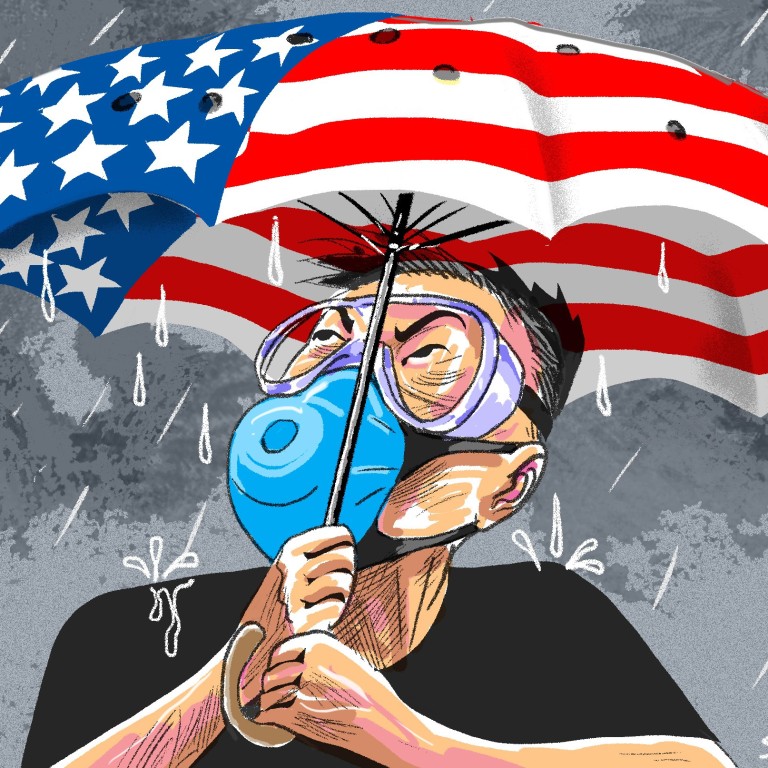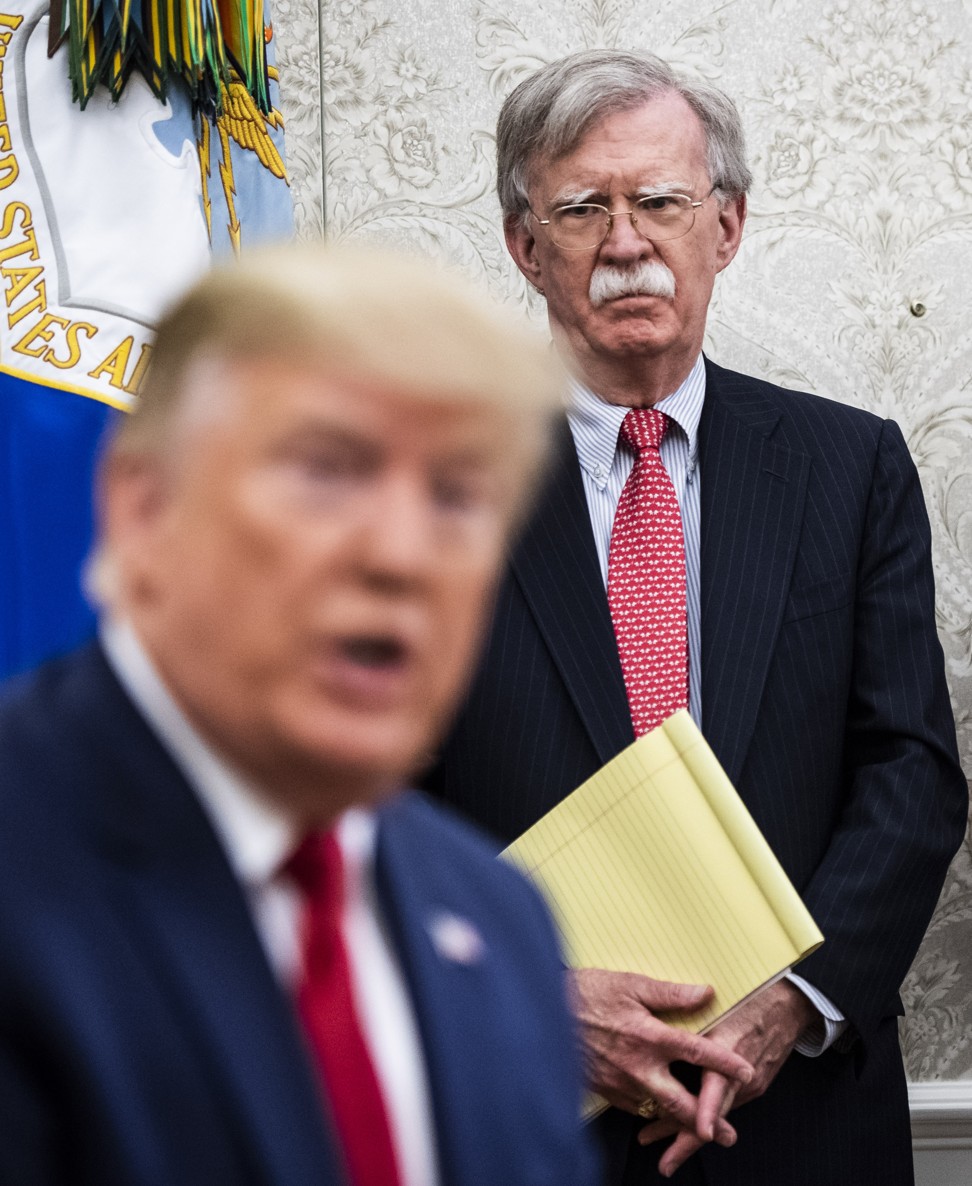
Hong Kong’s protesters can’t count on Donald Trump – he wants Asia to solve its own problems
- Just as some young protesters have adopted the American flag as a symbol of their hopes, US Asia policy is changing. If the Trump administration’s stance on Korea is any indication, he will keep a hands-off approach to Hong Kong
There was a time when an appeal for help like this would resonate in the White House too, but not now, and certainly not with this administration. The US role in Asia is changing, driven both by countries in the region and a Trump Asia policy that vacillates between somnolence and incoherence.
At its core, the US presence in Asia has largely been a welcome and natural counter to China’s growing influence and North Korea’s militarism. When it comes to threats of war, no other military can counter these threats.
But across the region, there is a notable and opposite trend gaining traction – a more unilateral approach to dealing with problems as Trump willingly abdicates the traditional US role of arbiter of disputes and balancer of powers.
Reconciliation isn’t rocket science: why can’t South Korea and Japan get along?
South Korea’s relationship with the US is also changing, albeit mostly at the edges. Seoul has pushed for, and Washington has agreed, to accelerate the return of 26 US military bases.
While the consolidation is nothing new – South Korean troops took over most duties along the demilitarised zone with North Korea over a decade ago – the turnover tracks with both Blue House and White House preferences for a less overt US presence on the peninsula.
Granted, Bolton’s version of US engagement was perversely extreme. He advocated for a first-strike against Pyongyang and was shoving for a war with Iran. Now, however, Trump’s worst foreign policy instincts, including another useless meeting with Pyongyang, are free to further unwind traditional regional cooperation.
Carrie Lam must draw her red line and stick to it
Hong Kong Chief Executive Carrie Lam Cheng Yuet-ngor certainly won’t miss Bolton’s hawkish approach. She continues to warn against any outside interference . This hews closely to Beijing’s political red line and the propagandists’ view that violent protests were the result of “foreign hands”. That’s an easy conspiracy theory to sell with the stars and stripes flying over the crowds in Central.
Trump’s response to the most recent calls for intervention in Hong Kong’s unrest was neither swift nor resolute – he didn’t bother to comment. During previous Hong Kong police violence, he only spoke out when Washington’s political backlash became too strong to ignore.
That’s not because the idea of freedom is no longer a core US value, but the era of engaged US-Asia diplomacy has withered under Trump. At least for the next 16 months, there’s little to suggest a change of course outside the most forcing issues of the day.
How much pain can China tolerate in the trade war? Trump will find out
As the Trump administration continues dismantling its engagement, preferring short-term gains over longer-term strategy, Asia will inevitably adapt to rely less and less on the US.
The Hong Kong protesters should be under no illusions. The White House might offer platitudes about a peaceful resolution if forced by political circumstance, but official administration support probably won’t last for long.
Brian P. Klein, a former US diplomat, is the founder and CEO of Decision Analytics, a strategic advisory and political risk firm based in New York City


